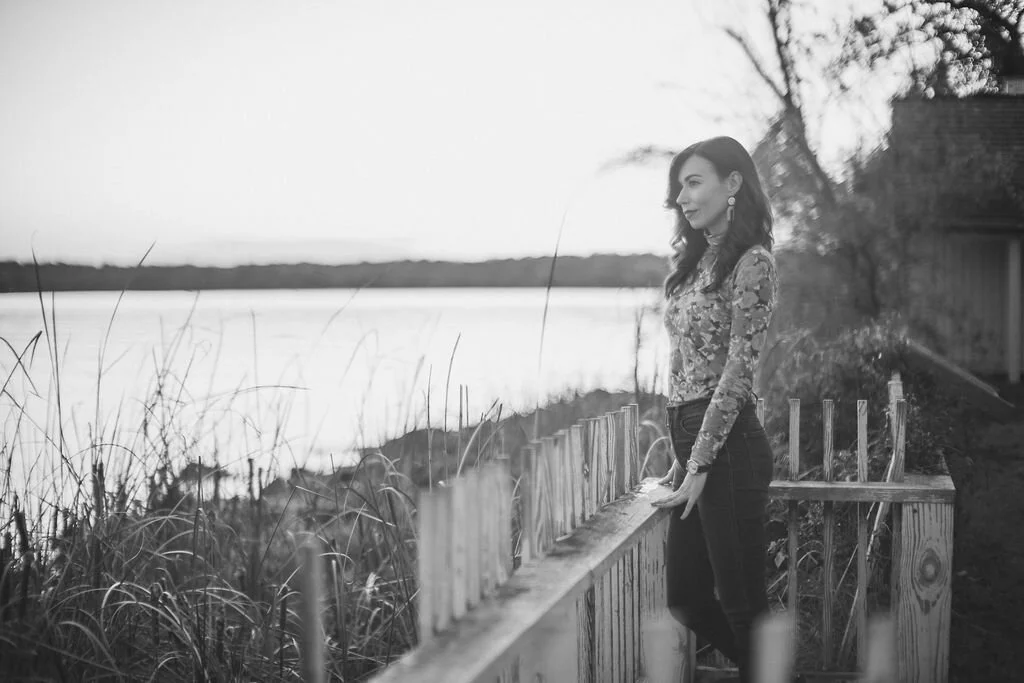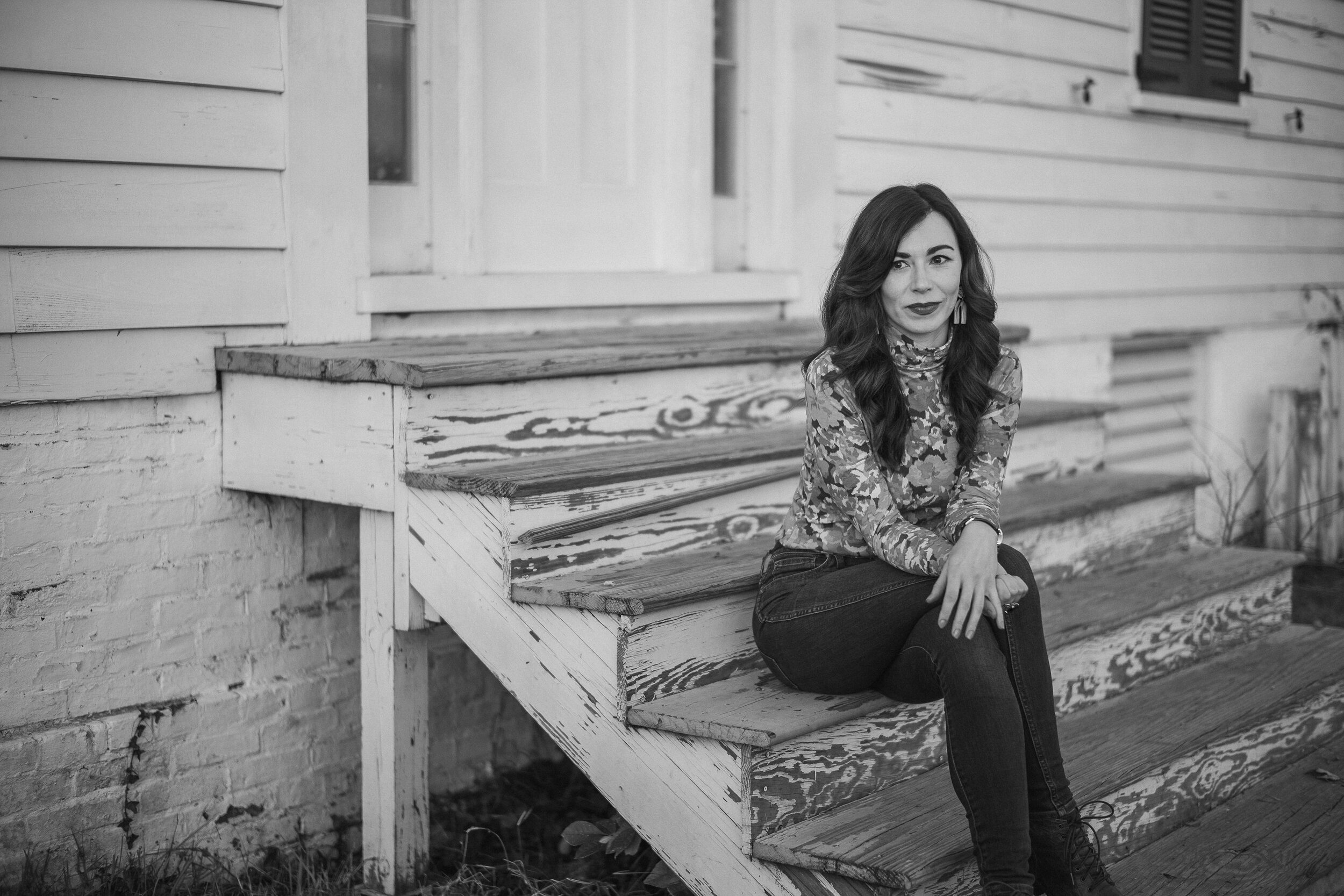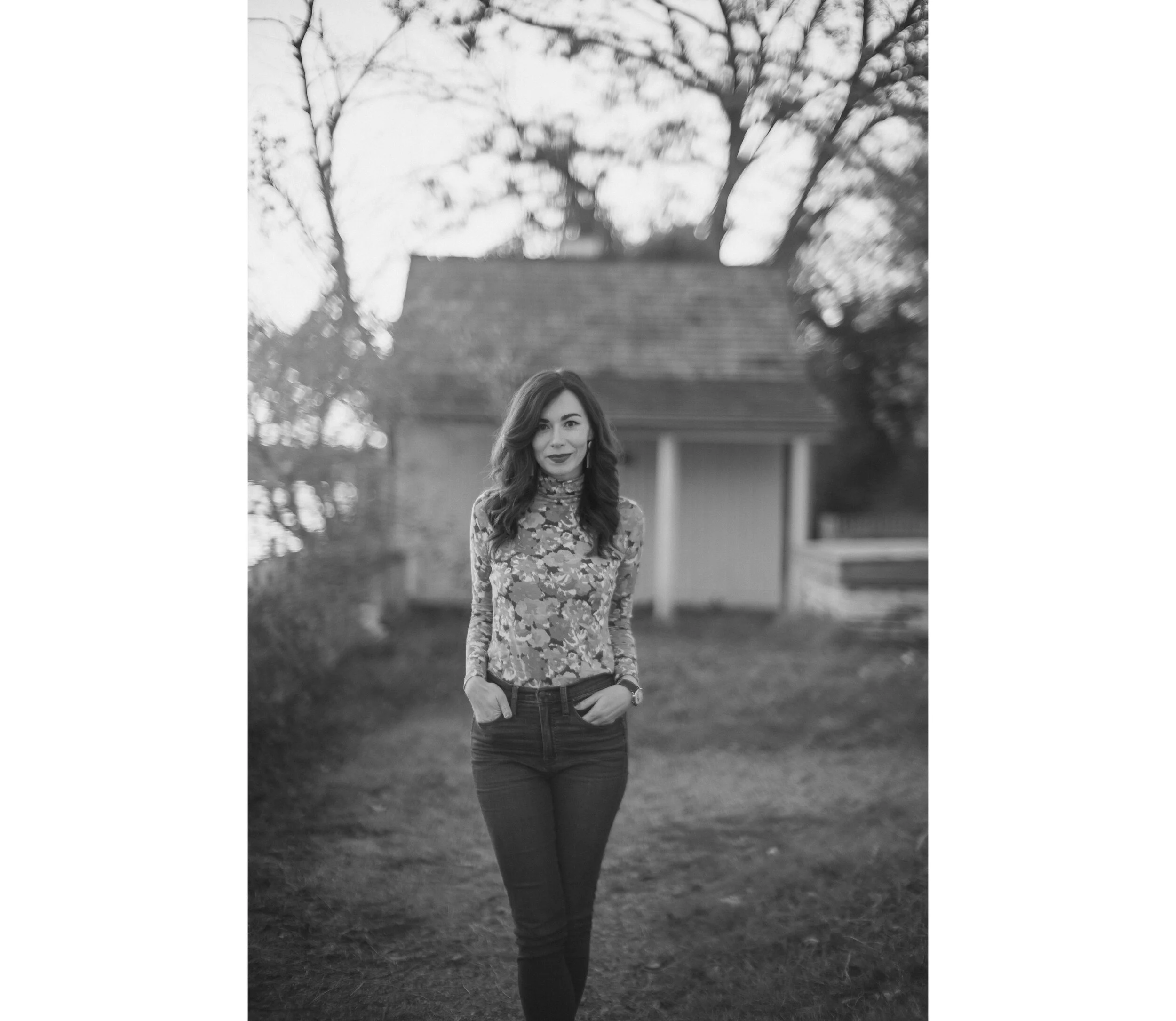Country Soil
Interview by Jennifer Cooper
Photography by Dave Cooper
“I am who I am because I grew up in Appalachia. The odds weren’t stacked against me. It was the greatest gift of my life.”
In the past, when Ashley Hill told people she’s from West Virginia they often responded by humming the banjo song from Deliverance. Now they ask her about Hillbilly Elegy.
“How we’re portrayed in that book saddens me. JD Vance relies on stereotypes—dangerous stereotypes,” Ashley tells me. She says that rather than dig into the complex issues of systemic poverty and generational abuse, Vance sees Appalachians as “lazy, uneducated, backwoods people forever. It’s a hack, easy narrative. It’s harder to tell the story of this nuanced region.”
And with his book being turned into a movie with a huge Hollywood director and several A-list actors who are no doubt vying for Oscars®, the story of what it means to be from Appalachia is about to be stolen from the people who were raised on its soil once again.
That weighs heavily on Ashley’s mind.
Now I’m not from West Virginia. My roots run from the north, in the Catskills. They’re tied to people who hunted and trapped, worked as maids and handymen, knew the joys of swimming in lakes and the smell of wood burning in a potbelly stove.
For most of my young life, I didn’t appreciate it. In fact, I probably tried to hide it. I didn’t understand what it meant to live off the land. My dream was to live inside a shopping mall and own a Benetton sweatshirt.
Maybe it’s the distance, maybe it’s years of life experience. Whatever it is, age has brought me a certain amount of clarity.
Ashley tells me she understands. “I bought into the stereotypes when I was young. But now, there’s nothing more beautiful than those accents I grew up cringing at. It shows the resilience of Appalachian people.”
So now she’s doing what she can to end the shame of being from a place that gets made fun of by people who know nothing about it. And she’s doing it for the next generation. “I think it’s important for young Appalachians to see Appalachian pride and to see successful people who are vocal about where they’re from.”
For the next several weeks, I’m dedicating jennifer magazine to meditations, insights, and the shifting nature of home—what we grew up thinking home meant, what we think it is now, and how we find it in ourselves.
We’re going to imagine what home could look like when we’re given space to heal from our hurts and are able to come together in love.
This is the first in our series.
I spoke with Ashley about what people get wrong about Appalachia (myself included, as my biases become evident in some of my questions) and what she sees as West Virginia's greatest strengths.
This interview has been edited for length and clarity.
I’ve been following you on Instagram for some time. You are a serious fan of West Virginia!
I’m so proud of our founding. We’re the state that said no; the state born of the Civil War. We broke free from Virginia because we weren’t being represented by it. Not only were we separated from them in way of life because we were mountain, rural people, we were also divided by how we saw the Civil War.
I had no idea. I mean I’d been to Harper’s Ferry a bunch as a kid. And I remember the story of John Brown and the enslaved people’s uprising. But mostly, I remembered that it didn’t end well. And as a kid, that made me anxious. But I see now that it’s a whole foundational element and something to be celebrated.
Our first governor, Arthur Borman, said it requires stout hearts and unfaltering determination to complete the task of succession. Breaking apart is a big deal. But we had to take that chance.
Our saying is that “Mountaineers are always free.” That means if you come to West Virginia, you can live by the way you want. It meant you wouldn’t be defined by slavery or the rich people. You could be truly independent. In fact, West Virginia is really based on the courage to go your own way.
What do people get wrong about Appalachia?
The prevailing thing about being Appalachian is to know all about duality. West Virginia is the only state that lies completely within Appalachia. To be from West Virginia is to know there’s natural beauty all around you, but it’s also to know you’re surrounded by poverty.
I got my first job in TV because I lived in a small town where people take a chance on you, but I also had to leave eventually because of the lack of opportunities.
There’s also the perception that we’re very set in our gender roles, but Appalachia is based on a very strong matriarchal society. Every Appalachian family I know talks about the very strong Mamaws.
My Mamaw Louise would never have considered herself an activist, but that’s what she was. She knew poor Appalachian people deserved the same basic rights as everyone else, so she fought to get city water into her town.
One day I turned on the TV, and there she was at an organizing meeting. I called my mom into the room. “Mamaw Lousie is on TV!” She was a firecracker of a woman.
It took a decade of going door to door, getting petitions signed, organizing. But she was successful. I’ve had people tell me, “I’ll always be thankful to Lousie for giving us water.”
Strong women are so important there.
Is there anything they get right about Appalachia?
Ooh, that’s a good question. I’d say the reverence for nature and reliance on land. And our food culture is starting to catch fire a little bit. Everyone knows about ramps now. We bought them off the side of the road and now they’re on menus in high-end restaurants.
And foraging for food is something often tied to us. Morel mushrooms—we called them molly moochers—are something people see the value in.
Also being able to make something out of nothing. We’re a resilient and resourceful people.
Okay, so let’s talk JD Vance’s Hillbilly Elegy. You don’t love it.
Yeah, don’t read Hillbilly Elegy, but do read Breece Pancake. He writes about the sadness of growing up in that place but also the beauty. Also read What You’re Getting Wrong About Appalachia by Elizabeth Catte.
So Vance’s portrayal is not how you grew up.
No. I had a great, beautifully simplistic childhood. Like, did I tie a string around a junebug with my Mamaw and see if it would fly? Yes. But how we’re portrayed in that book saddens me. It’s the thing that hits the public consciousness.
I am who I am because I grew up in Appalachia. The odds weren’t stacked against me. It was the greatest gift of my life. We looked out for each other there. We talked to our neighbors.
Our people are wildly proud but we also understand the shortcomings. I know we have a huge issue with the opioid epidemic. It’s taken family members and friends, but these redneck stereotypes are throughout the country. It seems unfair to place it all on one region.
“To be from Appalachia is to know all about duality: to be surrounded by natural beauty, but also by poverty.”
Why do you think we’re embarrassed by Appalachia? And by “we” I mean Americans who live outside of it.
It goes back to why I was embarrassed by it. You want to think that you’re bougie. We’re told poverty is something to be embarrassed by. People don’t understand the beauty that can be found in the small things.
I get a lot of people making the Deliverance music at me. I think it’s not wanting to slow down in the beauty of simplicity. We’re a scapegoat a lot—including politically. To write off the south is to do a disservice to all the people who are working and to those who worked in the past. Especially to the people of color who have been working really hard.
Ah, yes, let’s talk about that last part. When anyone says Appalachia, I think the majority of people out there think “white” and while it is largely white (West Virginia is 93% white according to U.S. Census estimates), there are a number of Black West Virginians who’ve had a massive impact on science, art, and culture. For instance, I just learned that Henry Louis Gates, Jr. is from Keyser!
We’ve got Bill Withers, too. (Jen’s note: three-time Grammy Award® winner, Withers, recorded Ain’t No Sunshine When She’s Gone, Grandma’s Hands, Lovely Day, and Lean on Me. He died in April of this year, 2020.) I think we can do a better job with our history—celebrating Black West Virginians in particular.
For instance, here’s one: I didn’t know Katherine Johnson grew up down the road from me! You know how I learned that? From watching the movie Hidden Figures. How could I not know that?
We just had an election where the person that lots of people in rural communities voted for has lost. I’m having a really hard time reconciling that these voters are good, decent people who would help anyone, yet they still voted for a man who has a laundry list of racist behavior he’s engaged in all the way back to the 70s.
Well, when you live in a place where the outside world doesn’t help—in fact you’re the butt of their jokes, where a lot of people are terrified of losing their jobs, you vote for what affects you or your neighbor.
It’s hard when you’re in a place that’s been exploited so much. People ended up with black lung so others could have electricity. So these small communities band together. Appalachian people are wary of anything that doesn’t help their neighbor, and lots of their neighbors are white-knuckling their jobs right now.
But let me tell you that if my mamaw heard me say anything racist, she’d wash my mouth out with soap. Even now!
You moved out of West Virginia and now live in the D.C. area for work. I get the sense you still ache for home.
To be from Appalachia is to be a member of a very specific club. I’ve never seen people who are so intense about where they’re from. I mean, we have a very intense point of pride. It’s hard to describe to anyone who’s not from there. There’s a real regional kinship.
The place I feel most myself is when I’m back home. It’s a really complicated place to be from, but the soil calls to me. It’s a weird heartbreak. Sometimes people describe it as a boyfriend or girlfriend. It grabs a hold of you and doesn’t let go.
There are two ways we deal with poverty in this country. We either romanticize it to the point of perversion or we turn our backs on it to the point of delusion. Neither is effective in helping each other or ourselves. And both are rooted in shame.
I have a feeling that’s what we’re doing with Appalachia. And I don’t know what we can do about it except face it head on. It’s what folks deserve to feel in their home: to be seen, loved, appreciated—and to feel you belong, and your people are glad to have you.
And there is so much to see, love, and appreciate there!
The area is richly diverse geographically and culturally. It’s also complicated and complex and deserving of love and support. Just like us.
Additional editing on this piece was provided by Kathy Cornwell
Photos were taken at Jones Point Park in Alexandria, Virginia.
*Book links take you to bookshop.com. Buying through them supports local, independent bookstores and us through their affiliate program. Thank you!



